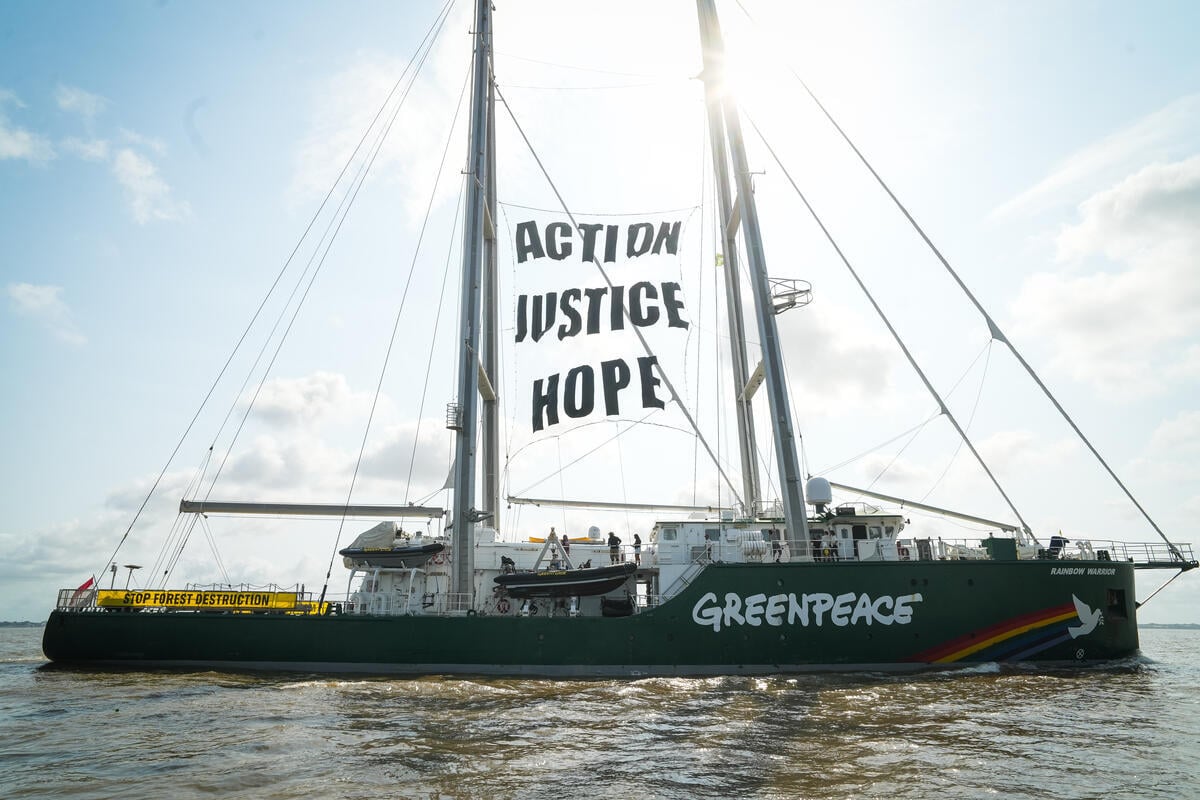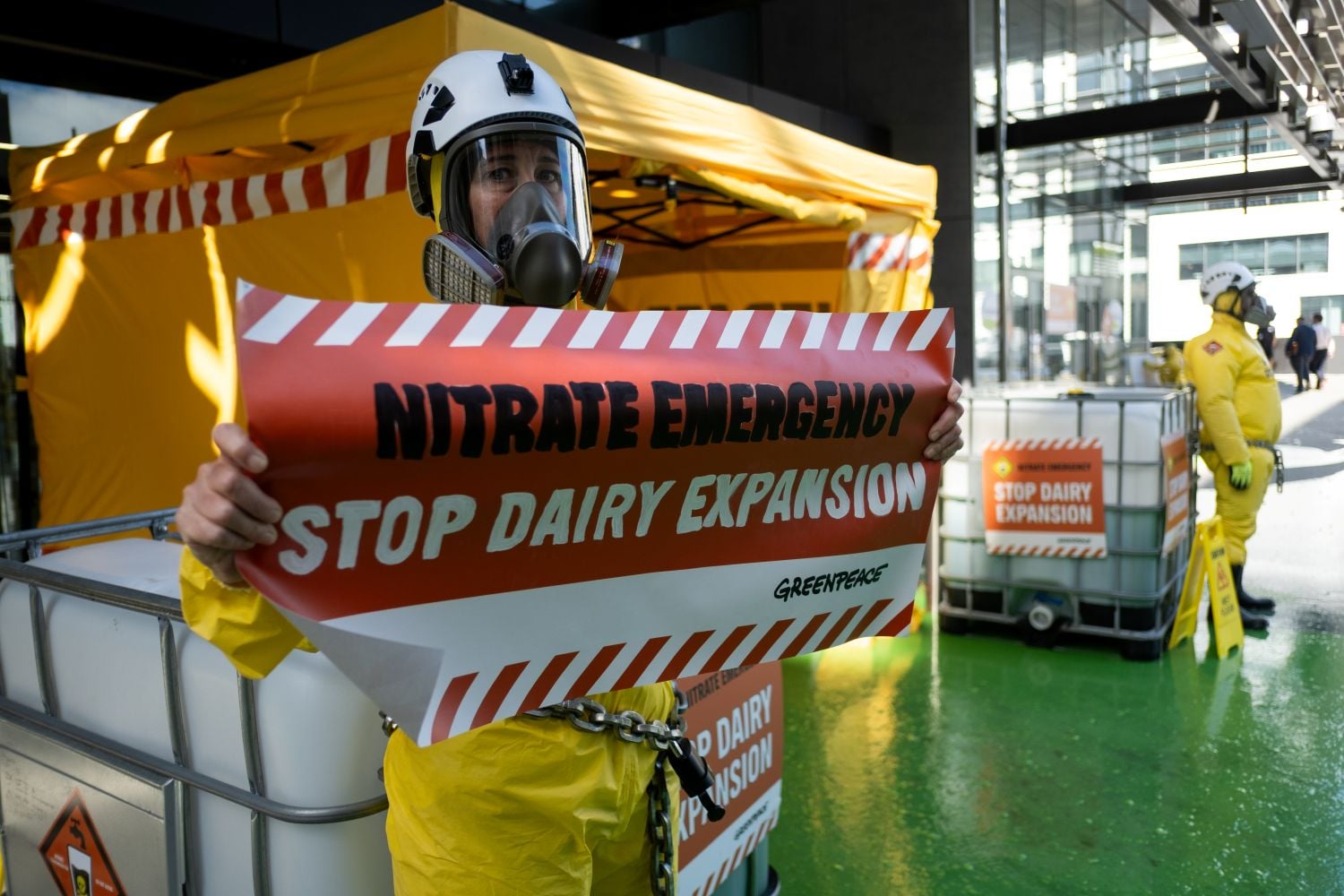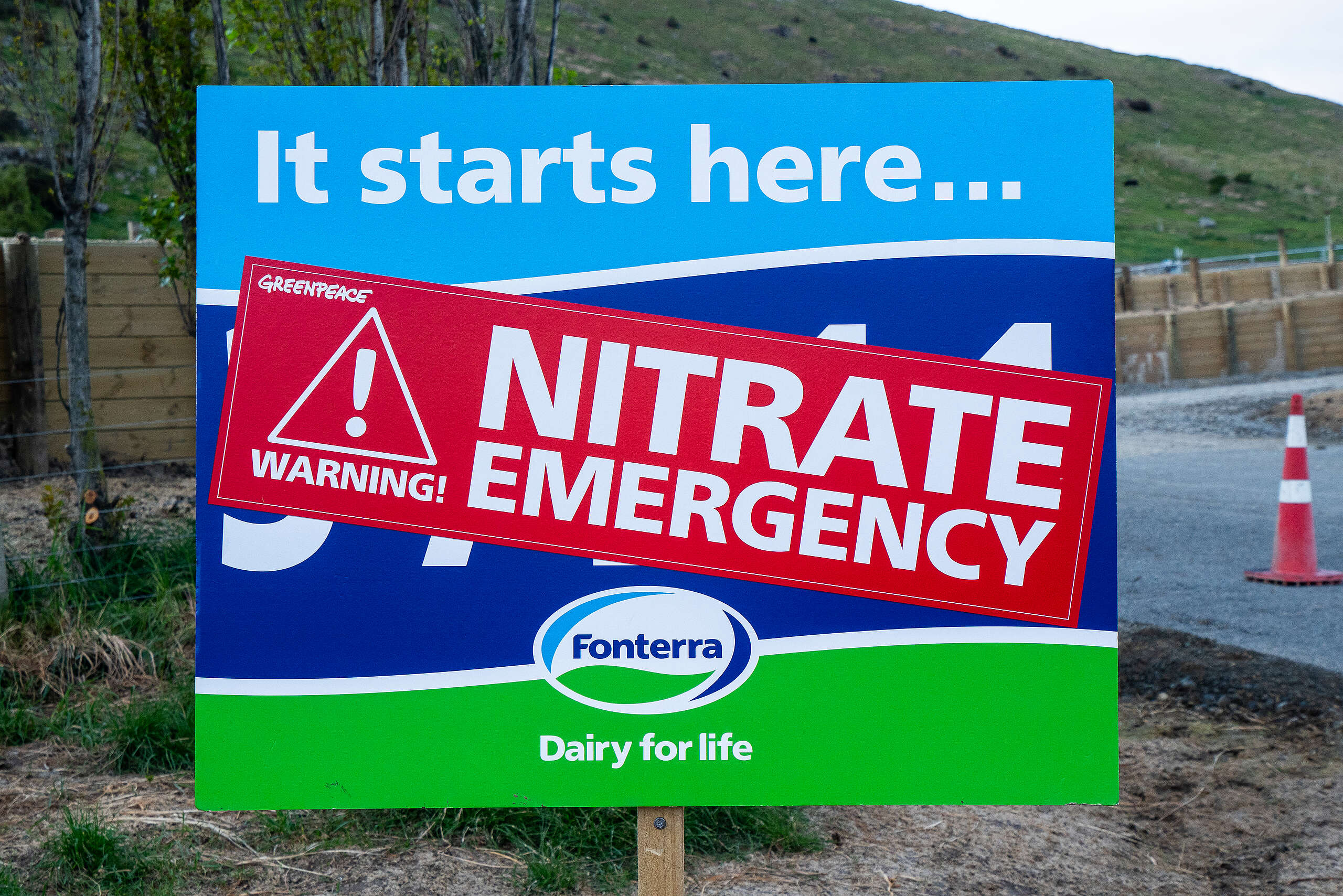Fonterra has launched a “plan” to clean up New Zealand’s waterways but Greenpeace says the dairy giant has failed to address the cow in the room.
“New Zealanders, and our rivers, deserve more than empty headlines from Fonterra” says Greenpeace’s agriculture campaigner Gen Toop.
“The still un-tackled problem with New Zealand’s rivers is intensification. Farms are overstocked with too many cows and that causes nitrate to leach down through the soil and into our waterways.”
The Parliamentary Commissioner for the Environment and several other scientific institutions have repeatedly drawn a clear link between intensive dairying and water pollution.
“Nitrate pollution from too many cows cannot be fixed with fences and planting. The only way to have clean rivers and safe drinking water is to have fewer cows.”
“Until Fonterra can commit to reducing the national dairy herd, our rivers will continue to suffer.”
Fonterra was part of the “swimmable rivers” pledge made by farming leadership just before the September election which was widely criticised for its failure to address cow numbers.
“Fonterra is not going to win back public opinion, or help its farmers, by issuing empty promises and spending megabucks on flashy ad campaigns trying to convince us all that everything is fine with the dirty intensive dairying model.”
Unlike Fonterra, Greenpeace has been championing regenerative farming, a way of farming, with fewer cows and more diversity, which looks after New Zealand’s rivers.
Following the launch of a short Greenpeace film called “The Regenerators” featuring some of NZ’s leading regenerative farmers, the United Nation’s Food and Agriculture Organisation approached the environmental group wanting to showcase the farmers.
The United Nations has just published a report based on the short film, and Greenpeace’s video has now been viewed nearly 100,000 times.
“New Zealander’s will quickly get sick of these empty promises from Fonterra and farming leadership while our rivers continue to crash.”
“It’s time Fonterra and farming leadership started actually doing their job and leading farmers in the transition towards regenerative farming.”
ENDS



